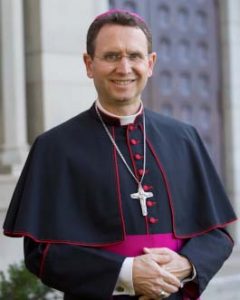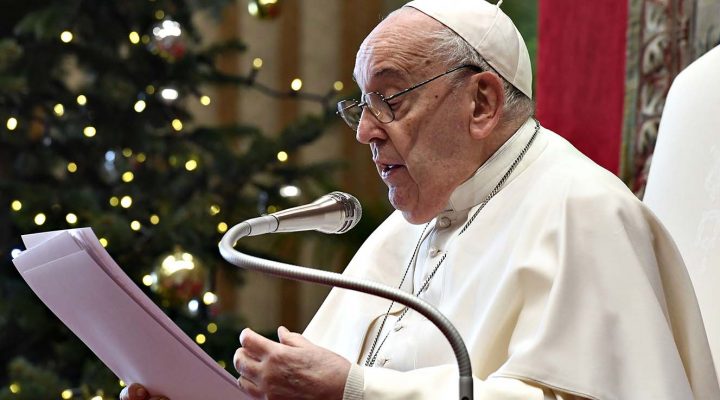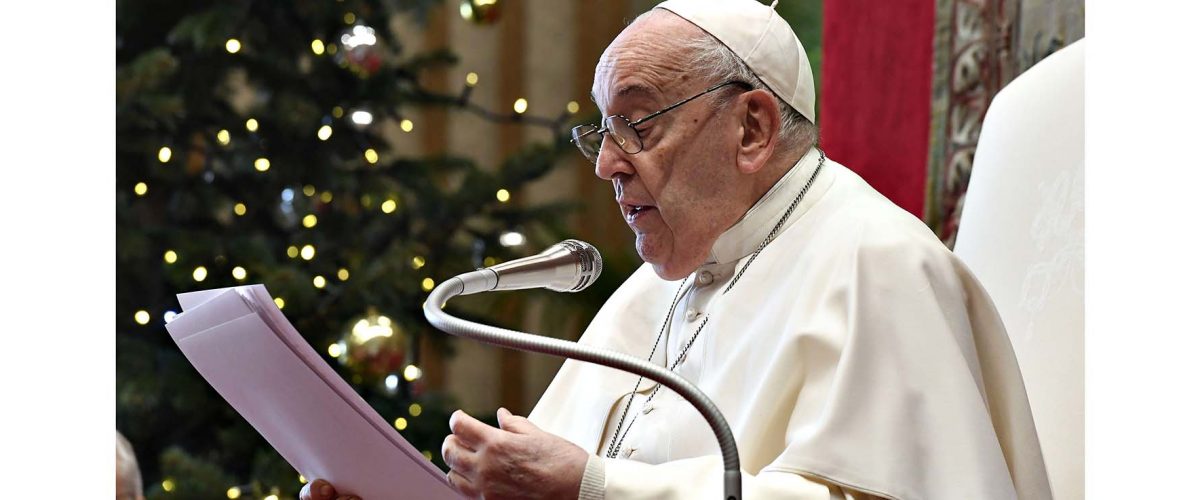Pope Francis may have authorized non-liturgical blessings for same-sex couples, but not everyone in the Catholic hierarchy is going along.
Traditionalist bishops, particularly in Africa and Asia, already are revolting and defying the pope’s supposedly unquestionable authority.
In a recent report, The Wall Street Journal’s longtime Vatican and global religion correspondent Francis X. Rocca indicated “the bishops of Zambia, Malawi, and the principal archdiocese of Kazakhstan prohibited their priests” from offering blessings of same-sex couples.
The report added the bishops of Ukraine issued a statement of lament for the declaration’s wording, “which they warned could suggest approval of gay relationships.”
Of special note was a statement issued by the bishops of Zambia.
Of special note was a statement issued by the bishops of Zambia. They indicated their ban on blessing same-sex couples despite the new papal policy was “in order to avoid any pastoral confusion and ambiguity as well as not to break the law of our country which forbids same sex unions and activities and while listening to our cultural heritage which does not accept same sex relationships.”
Along with 31 other African states, Zambia has implemented strict anti-gay laws. According to the Human Dignity Trust, a U.K.-based global LGBTQ legal advocacy group, Zambia prohibits same-sex activity for both men and women. Its penal code outlaws “acts of carnal knowledge against the order of nature” and “gross indecency.” The laws carry a maximum penalty of 14 years of imprisonment.
Other commentators suggest such legal and cultural realities may lead to an increase in similar defiance of the pope in other Catholic jurisdictions.
In the United States, many conservative and traditionalist bishops have been mum about the issue to date.
The largely conservative U.S. Conference of Catholic Bishops had a brief and measured reaction which noted “the church’s teaching on marriage has not changed, and this declaration affirms that, while also making an effort to accompany people through the imparting of pastoral blessings because each of us needs God’s healing love and mercy in our lives.”

Bishop Andrew Cozzens
Despite the relative silence and caution, some acts of papal defiance and criticism have been seen in the United States. Notably, the Wall Street Journal reported candid remarks from Bishop Andrew Cozzens of Crookston, Minn., who described the Vatican’s new document as “offering blessings to people who currently live outside of the way of life commanded by Jesus.”
Pope Francis seemed to issue a rejoinder to these developments in a Dec. 21 Christmas address to the Roman Curia. While not explicitly naming dissenting bishops and other traditionalists, the pope warned “against rigid ideological positions that often, under the guise of good intentions, separate us from reality and prevent us from moving forward.”
Further, in a provocative remark that explicitly invoked the Second Vatican Council (a 1960s council long criticized by Catholic traditionalists for liberalizing the church), Pope Francis drew a dichotomy between those seeking to modernize church practice and those seemingly wanting to maintain the status quo.
“It takes courage to journey, to fare forward,” he said. “It is a matter of love. It takes courage to love. … Sixty years after the Council, we are still debating the division between ‘progressives’ and ‘conservatives,’ but that is not the difference: the real, central difference is between lovers and those who have lost that initial passion. That is the difference. Only those who love can fare forward.”
These comments are sure to provoke more outrage from other so-called “radical traditionalists” (or “rad-trads,” in popular internet lingo).
In a move widely condemned by traditionalists, Pope Francis recently removed traditionalist bishop and outspoken papal critic Joseph Strickland, who had accused the pope of “undermining the Deposit of Faith.”
At around the same time, Pope Francis disciplined traditionalist Cardinal Raymond Burke for being a source of “disunity” after comments from the cardinal that the papal-initiated Synod on Synodality, which covered topics ranging from women serving in holy orders and LGBTQ life in the church, would create “confusion and error and their fruit — indeed schism.”
Should the world’s largest ecclesiastical body see a schism over the contentious issue of LGBTQ inclusion, it would be its first major schism in nearly 35 years. The last schism involved irregular ordinations performed by a canonically irregular and suspended traditionalist order called The Priestly Society of Saint Pius X in 1988.
A small (but surprising) number of hyper-traditionalist Catholics have defected to the Society of Saint Pius X from the Roman Catholic Church, especially in view of the papal interventions in 2021 and 2023 that restricted the use of the traditional Latin mass.
In 2022, SSPX reported a record number of 700 ordained priests. The society also boasts three bishops, nearly 200 seminarians at six traditionalist seminaries, and 600,000 lay persons attending the traditional Latin mass at its chapels, priories, retreat centers and monasteries and convents.
It’s not just traditionalists who are upset with the pope over the issue of LGBTQ recognition.
Progressive religion journalist Celia Wexler deemed the pope’s latest theological creation as a “sleight of hand,” noting the document still calls sexual relations outside marriage morally illicit.
Wexler lambasted the pope for not going far enough: “The pope has had more than a decade to bring the church into the 21st century. He’s hinted and waffled and played with words. He’s made the church more welcoming, and the papacy more popular. But many of those changes could evaporate on his death, leaving behind some confusion, a lot of disappointment, and very few substantive reforms.”
Related articles:
Vatican’s new stance on blessing same-sex couples draws praise and ire
She was the only Baptist and only woman fraternal delegate at a Vatican synod


